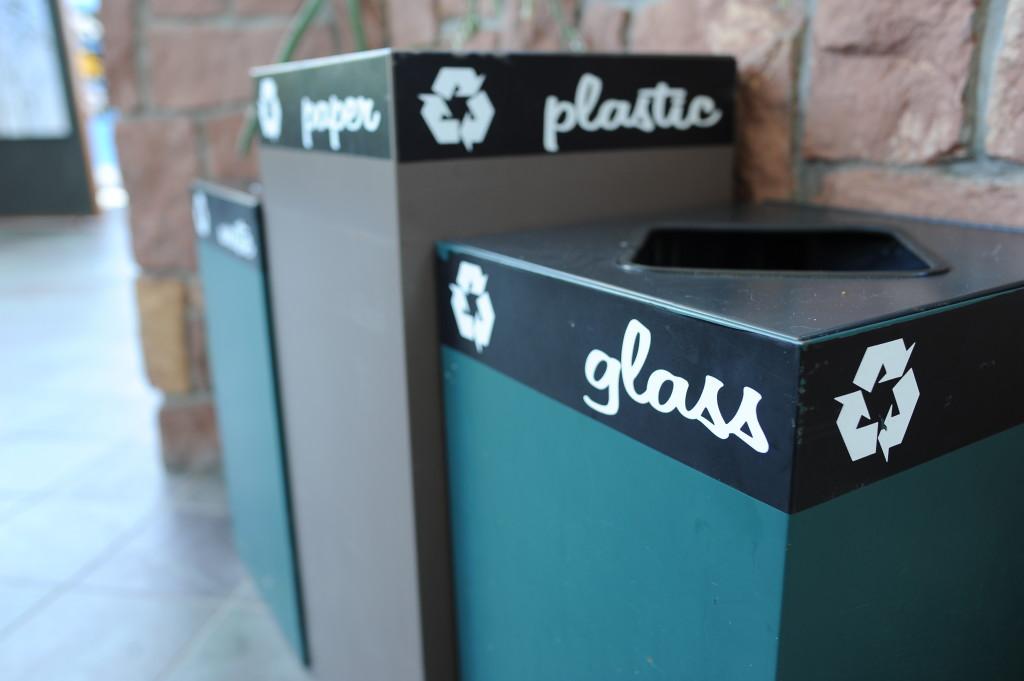The U has made significant efforts to improve sustainability practices on campus. Since 2008, over $400,000 has been allocated to the Sustainable Campus Initiative Fund that supports environmentally sustainable projects proposed by students, like the Edible Campus Gardens. Additionally, the U is one of more than 600 universities that has committed to producing zero carbon emissions by increasing energy management and research towards renewable energy sources. With such a progressive outlook on sustainability, it is shocking that the U is lacking in one of the simplest ways to maintain an environmentally-friendly campus: recycling.
The current policies for recycling at the U do not provide access to a plethora of recyclable materials. Though there are recycling bins in every building and designated bins for mixed paper, plastic, aluminum and trash, the items that can actually be put in those bins are very limited. As of right now, the main campus recycling bins for plastic allow for only plastics #1 and #2 to be recycled.
Compared to other universities in the PAC-12, our policies are severely lacking. USC recycles over half of all waste on campus, UC Berkeley and UCLA are both on track to having zero waste by the year 2020, and both the University of Oregon and the University of Arizona recycle all plastic types on campus. Initiating such expansive recycling policies can be costly, but other universities in our conference have realized the importance of recycling on campus and are willing to make the investment. Because the U has not done the same, our campus has limited the amount of materials recycled each year. Additionally, many students are unaware that many plastic materials cannot be placed in the plastic recycling bins and have harmfully recycled their plastics. Harmful recycling is arguably worse than not recycling at all.

“Reduce, reuse, recycle” has become a household alliteration for promoting environmental consciousness. But this is somewhat misleading, especially when it pertains to plastics. Plastic water bottles are made from a different material that is much safer than the plastic that composes plastic tubing. Putting plastic tubing in recycling bins where they are not managed could result in an entire batch of plastic water bottles made from toxic materials. This is an extremely unlikely and dramatic example, but the point remains — not all plastics are created equal, and discriminating against certain types of plastic is actually beneficial.
We are all familiar with the recycle symbol that is stamped on plastic bottles, cardboard boxes and take-out containers — three arrows configured in a triangle. However, many are oblivious to the small number inside the triangle, or the significance of the letters that are often placed below the symbol. The number is between one and seven and corresponds to the plastic group the specific item belongs to. The letters are an abbreviation for the fancy chemical nomenclature of the polymer the plastic is made from, so plastic water bottles are actually named PETE.
When recycling at the U, it is vital that students understand which materials can be placed in the plastic recycling bins. It may seem like a sin to throw a plastic grocery bag in the trash, but doing this is more responsible than trying to look eco-friendly and throwing it in the plastics bin. Only plastics #1 and #2 should be recycled while on the main campus — items like plastic water bottles and two-liter soda bottles, peanut butter jars, Ziploc bags, milk jugs, juice containers and yogurt containers are all recyclable at the U. Notice that plastic grocery bags, straws, take-out containers and red Solo cups are not on the list and should be recycled elsewhere.
It is entirely possible and practical to hold items until you can recycle them properly — just because they are not recyclable on campus does not mean they cannot be recycled anywhere. If you reside within Salt Lake City limits, curbside recycling allows almost everything, including plastics 1 through 7. Instead of chucking your plastic grocery bags in the trash or, *shudder,* littering, wait until you are home to recycle them properly. At the student dorms and student apartments, plastics #1 through #7 can be placed in the recycling bins.
Until our campus recycling policies become more widespread, students determine how sustainable our campus will be. This starts with education: Know which items can be recycled and where they should be placed. Know which types of plastics are the most detrimental to the environment and avoid them if possible. Know where items like glass, batteries and ink cartridges can be recycled — several businesses have drop off recycling for items not covered by city recycling. Recycling is easy when it is done correctly and doing it correctly is easy.











